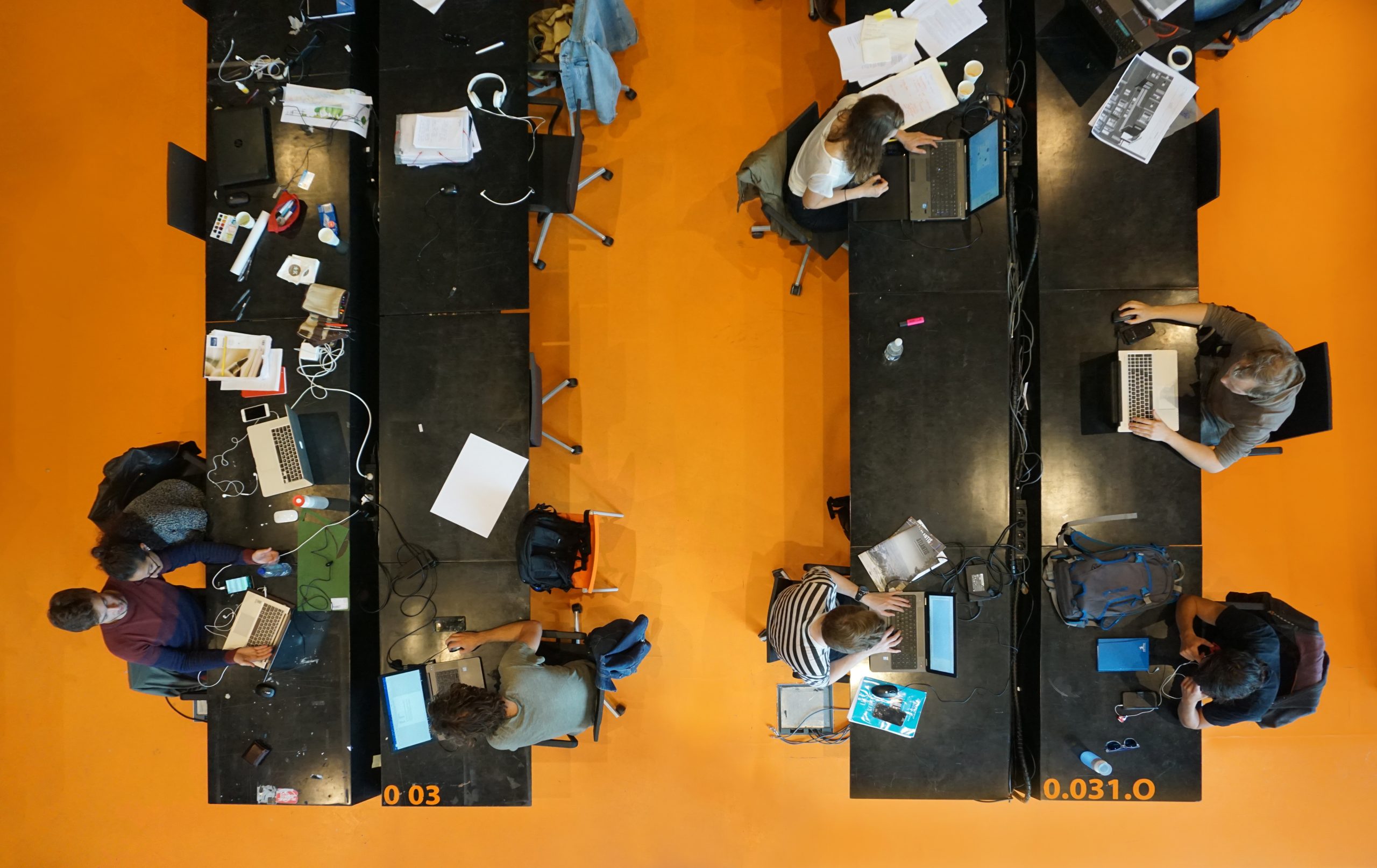The Executive Board sent the first progress report on social safety to the Inspectorate of Education on 1 October. It contains details about measures that are intended to improve social safety.
(Photo: TU Delft )
A lot of the measures listed in the progress report had already been announced. They were stated in the monthly updates to staff, the recent interview with Rector Tim van der Hagen in Delta, and the Plan for Change that was sent to the Inspectorate in May. The Inspectorate deemed the Plan for Change as inadequate, in part because it did not include clear and measurable information about potential measures.
The progress report (in Dutch) now concentrates on this. The document of nearly 40 pages lists 120 activities for awareness raising and prevention, informing and care. Some of these measures are already done, such as: the progress report which is now ready; the creation of a project organisation; and, the hiring of extra staff for the Integrity Office. The Executive Board is also undergoing facilitated reflection sessions on the situation, and the deans and directors have also attended a reflection session.
Healing discussions
There are more measures planned for the near future too. A website containing all the information about social safety at TU Delft will go live on 4 October. The ‘Share and Care’ will start at the end of October. This will involve two types of group discussions: ‘healing discussions’ and ‘learning dialogues’ which are designed to help restore trust among attendees. These discussions could also lead to aftercare such as ‘counselling, coaching, medical and psychological support’. And a card game will be made available at the end of 2024 that could help in discussions about social safety.
The central hotline for social safety should open in mid-November with a telephone line and an email address. This may need to be phased in, whereby certain groups are given precedence, although this is not the preferred option. Consultations are currently underway with the representation bodies and trade unions on this and other issues.
Complaints procedure
The project team is also looking for appropriate software for the hotline. A spokesperson explained that the hotline could be supported by TU Delft’s own systems and on its own servers, but working with an external company would be beneficial for complainants and the hotline staff. This would ‘simplify, optimise and better streamline processes’ and ‘enhance trust among complainants’.
Further, 25 Mindlab events are planned for the periods between 11 en 22 November 2024 and between 20 January and 7 February 2025. These are theatre performances about social safety followed by group discussions. The Manager of the Integrity Office recently said that at least half of all staff members should attend one.
All the existing complaints procedures are currently being evaluated. These should lead to a review of these procedures at the end of 2024 or beginning of 2025. Shortly after that, the integrity infrastructure will be redesigned so that the role, tasks, and responsibilities of each person is clear.
February deadline
Many activities are already underway or will start soon, but many other measures will only start after February 2025, some long after that. By then, the care for staff members needs to have been measurably improved as the Inspectorate will start reassessing the situation in February. In the report, the project team states that it does not view this as a deficiency, but as ‘a conscious decision to bring about lasting change … The objective is not simply to complete the planned activities, but to have a lasting impact that goes beyond simply rolling out these activities.’
More, even bigger, activities that are planned for after February include work conferences (max. five) about specific subjects such as revising the Code of Conduct; compiling a ‘multi-year policy agenda’; and, by extension, the upholding of a Plan-Do-Check-Act cycle.
And in the planning for later are improving the Result and Development cycle and introducing a code for Human Resources. The spokesperson wrote that the Inspectorate of Education ‘had its doubts that our Result and Development cycle was properly carried out. They noted that social safety was not a topic of discussion and that giving feedback to supervisors was experienced as difficult. The approach that will now be followed addresses this.’ For the HR code, attention must be paid to the ‘handling of integrity reports, confidentiality and transparency’.
A spokesperson had already informed Delta that the Inspectorate of Education will not respond publicly to the progress report.
So what were the Inspectorate’s findings again?
The Inspectorate of Education investigated transgressive behaviour at TU Delft from December 2022 to November 2023. In the resulting report, the investigators speak of intimidation, racism, sexism, bullying, exclusion, gossiping, social insecurity due to lack of leadership and a culture of fear, among other things. For instance, employees are said to be afraid to voice their opinions and hold each other accountable for behaviour.
The effects among TU Delft employees who have reported to the inspection are often long-lasting and hampering. The inspectorate speaks of psychological and physical health complaints, absence from work and a general feeling of insecurity. Stress, burnout, depression and PTSD, crying and tense home situations also occur, as do illness, vomiting at work, panic attacks and heart palpitations.
The inspectorate reports that TU Delft’s university administration has a lot of information regarding what is happening in terms of social safety, but that they ‘omit to add everything up so as to create a complete picture’. ‘The management’ also ‘does not adequately manage in terms of appropriate measures’. The Inspectorate believes that this is mismanagement.
Read the news and background articles on the Inspectorate’s report in our dossier.
Do you have a question or comment about this article?
s.m.bonger@tudelft.nl


Comments are closed.